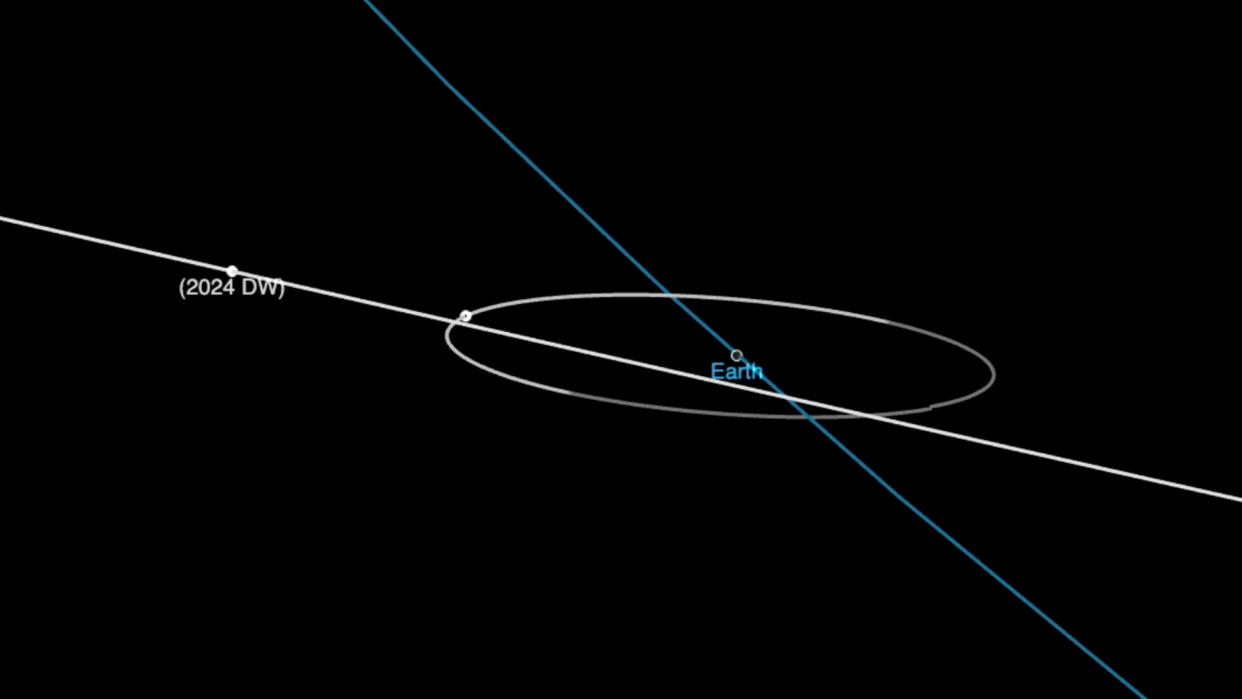An asteroid the size of a bus will fly near Earth on Feb. 22 — but don't worry (video)

A newly discovered asteroid about the size of a school bus will zoom by Earth at a range closer than our moon on Thursday (Feb. 22), but it shouldn't pose a threat to our planet.
Called 2024 DW, the newfound asteroid is about 42 feet (13 meters) wide and will fly within 140,000 miles (225,000 kilometers) of the Earth when it passes by us on Thursday. That's closer than the average distance to the moon, which orbits about 239,000 miles (385,000 kilometers) from Earth, according to NASA.
Related: An asteroid will hit Earth at some point. What can we do about it?

Asteroid 2024 is just one of several so-called "potentially hazardous asteroids" — space rocks with orbits that bring them within 4.6 million miles (7.5 million km) of the Earth — that will fly by our planet on Feb. 22. However, it will be the closest. Another bus-sized asteroid will pass at a range of 482,000 miles (775,000 km), while an asteroid the size of a jumbo jet will fly by at comfortable distance of 2.5 million miles (4 million km), according to a NASA list of the next five asteroid flybys.
Related Stories:
— What can we do with a captured asteroid?
— A tiny asteroid just snuck between the Earth and moon
— Photos: Asteroids in deep space
Asteroid 2024 DW was first discovered on Feb. 19 by astronomers with the Mt. Lemmon Survey. This survey is part of the ongoing Catalina Sky Survey to track near-Earth asteroids that could potentially threaten our planet, according to a database from the International Astronomical Union's Minor Planet Center (MPC) at the Harvard-Smithsonian Carnegie Center for Astrophysics.
Scientists initially used the Steward Observatory at Mt. Lemmon Station in the Santa Catalina Mountains northeast of Tucson, Arizona to spot the asteroid. Subsequent observations with a University of Hawaii telescope atop the Mauna Kea volcano confirmed the find, according to the MPC.
Astronomers and NASA scientists regularly keep watch for near-Earth asteroids that may post an impact risk to Earth. In September 2022, NASA's DART spacecraft crashed into a small asteroid in a successful test of an asteroid deflection technique that could one day help safeguard our planet. A year later, in September 2023, the agency's OSIRIS-REx spacecraft brought samples of another space rock, asteroid Bennu, to Earth to better understand the composition of the object.

